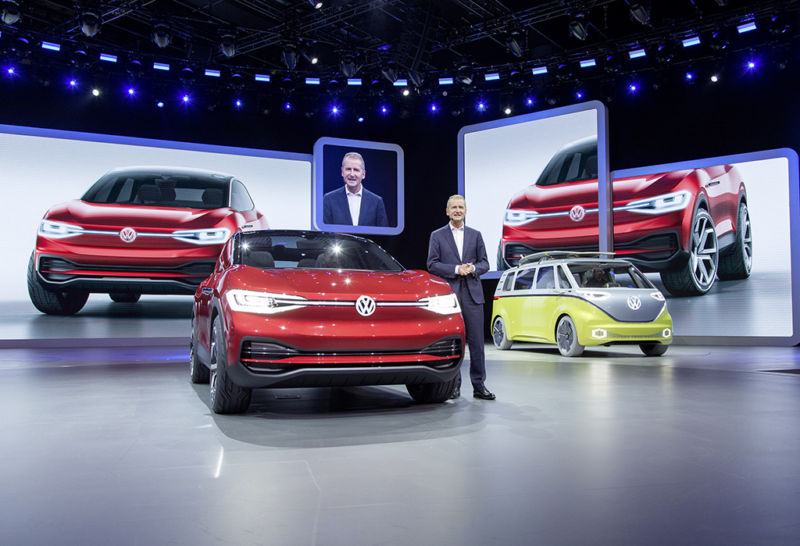Volkswagen wants to sell 1.5 million electric vehicles a year in China by 2025
Ars Technica 2017-11-16

Enlarge / The I.D. Crozz and I.D. Buzz EVs are coming soon. (credit: Volkswagen Group)
Volkswagen Group is getting ready to significantly expand its electric vehicle portfolio in China over the next few years. The company plans to launch 15 “new energy vehicles”—plug-in hybrid EVs and battery EVs—by 2020, according to a report in Reuters. Jochem Heizmann, CEO of VW Group’s operations in China, also told Reuters that the company plans to invest $11.8 billion (€10 billion) in order to comply with ever-stricter Chinese EV regulations.
China is one of a number of countries that has publicly floated a ban on petrol and diesel engines in the coming years, although unlike France and the UK, it has not set a date for that to happen. But Chinese drivers are going to get a lot more EVs long before any ban on new internal combustion engines. The country’s new energy vehicle rules go into effect in 2019, requiring automakers to sell ever-increasing numbers of EVs; those that don’t comply either have to buy credits from other OEMs or pay the Chinese government fines.
Earlier this year, VW Group revealed its electrification roadmap, which promises 30 new PHEVs and 50 new BEVs by 2030, so this news from China is not entirely unexpected. These new cars will have to be built in China to deliver the sales volume that VW is hoping for—Heizmann told Reuters the company wants to sell 400,000 EVs a year in China by 2020 and 1.5 million each year by 2025. Vehicles that are not built in China—as joint ventures with domestic partner companies—are subject to a 25 percent import duty which makes them uncompetitive on price. (This tariff will apply to EVs from Tesla's proposed Chinese factory, which will not be a joint venture and which will be located in a free trade zone.)